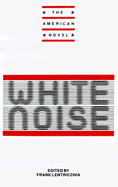4 - Lust Removed from Nature
Published online by Cambridge University Press: 05 June 2012
Summary
Everywhere we remain unfree and chained to technology, whether we passionately affirm or deny it. But we are delivered over to it in the worst possible way when we regard it as something neutral; for this conception of it, to which today we particularly like to do homage, makes us utterly blind to the essence of technology.
–Martin Heidegger, “The Question Concerning Technology”The world in which postmodern reality is taken to be the only “true” one is a product of technology, or of its essence. Of all contemporary American novelists, including Thomas Pynchon, Don DeLillo has most fully dramatized this state of affairs, given it its most detailed, expressive, and philosophically powerful representation. White Noise is DeLillo's exploration of an America in which technology has become not merely a pervasive and mortal threat to each of its citizens, but also, and more importantly, a deeply ingrained mode of existing and way of thinking that is the characteristic feature of the republic.
DeLillo is not the first to reflect upon the question of technology. In the work of Martin Heidegger one finds important antecedents to DeLillo's own novel speculations on the relationship between modern technology and postmodern political life. However, to acknowledge Heidegger's historical primacy or the trenchancy of his philosophic critique of technology is by no means to deny or ignore DeLillo's considerable independence and originality.
- Type
- Chapter
- Information
- New Essays on White Noise , pp. 63 - 86Publisher: Cambridge University PressPrint publication year: 1991
- 5
- Cited by



